
OR
Govt gears up preparation to resume pesticide residue standard tests in fruits and vegetables
Published On: December 2, 2020 02:24 PM NPT By: Dilip Paudel
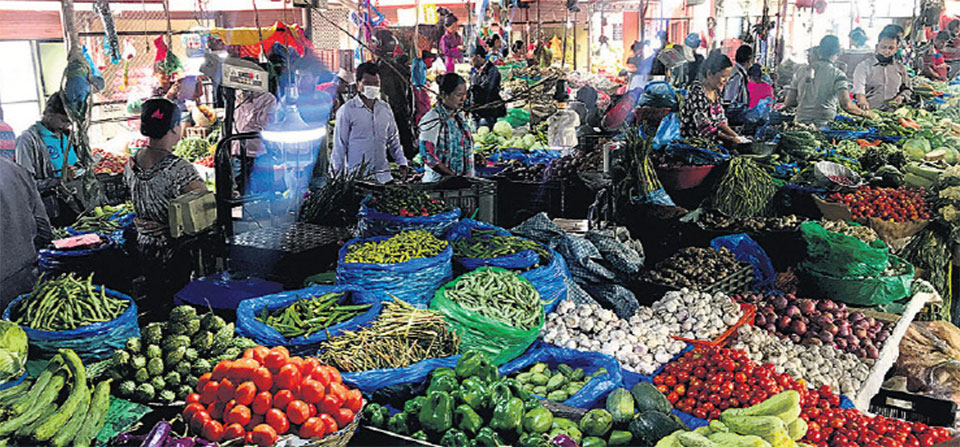
A pesticide residue standard in fruits and vegetables prepared by the Department of Food Technology and Quality Control (DFTQC) is currently under consideration in the cabinet for approval.
KATHMANDU, Dec 2: At a time when consumers are complaining about the presence of pesticide residue in consumable fruits and vegetables, the government has set the maximum limit for pesticide residue in fruits and vegetables available in the market.
Taking its impact into consideration, the Department of Food Technology and Quality Control (DFTQC) has formulated standards to control the consumption of pesticide-treated vegetables and fruits. The department has sent the criteria regarding the maximum limit of pesticides in fruits and vegetables to the Office of Prime Minister and the Council of Ministers.
Director General of the Department Upendra Ray said the criteria will be implemented after it is approved by the cabinet meeting. He said that the criteria have been prepared by setting the maximum limit of pesticides in 10 fruits and vegetables.
Mohan Krishna Maharjan, spokesperson of the DFTQC, said the criteria have been prepared as vegetables and fruits contain pesticides that are injurious to human health.
Criteria have been prepared to test bananas, apples, okra, cauliflower and other vegetables and fruits. “The standard states the amount of pesticide that should not cross the limit,” Maharjan said. "Once the standard is approved, we will collect samples and test them in the laboratory."
There have been calls for pesticide testing of vegetables imported from India. Almost 80 percent of the pesticides used in vegetables consumed by Nepalis have not been tested.
More than a dozen groups of pesticides are used in domestically produced and imported agricultural commodities including vegetables and fruits. Of them, about 20 percent of the two groups are tested for pesticides residue. The remaining 80 percent are not tested.
According to the Plant Quarantine and Pesticide Management Centre, only organophosphate and carbamate under the insecticide category are tested as samples in vegetables sold in the market. Nepal does not have the technology and mechanisms necessary in place to test remaining 80 percent pesticides.
The pesticides used here are 17.57 percent organophosphate and 2.29 percent carbamate. At present, the Rapid Bioassay of Pesticides Residue (RBPR) lab tests only these two groups of pesticides. Although the Central Laboratory of the DFTQC collects and tests samples of some other pesticides, there are no other facilities for testing pesticides in the country.
Since pesticides are used in vegetables and agricultural products, the residues of those pesticides should be tested. While there is a debate on the need for mandatory pesticide testing of vegetables imported from India, domestically produced vegetables also reach the consumers' kitchens without any such tests.
You May Like This
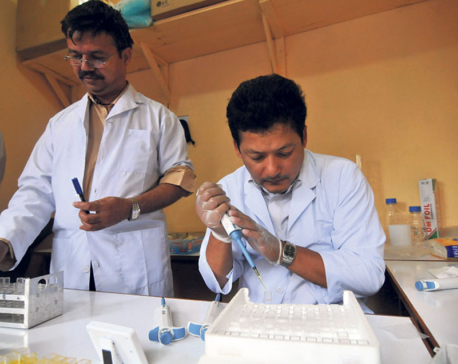
Pesticide testing of fruits and vegetables started at seven border points
KATHMANDU, Oct 27: The Department of Food Technology and Quality Control (DFTQC) has started testing residues of pesticides at seven... Read More...
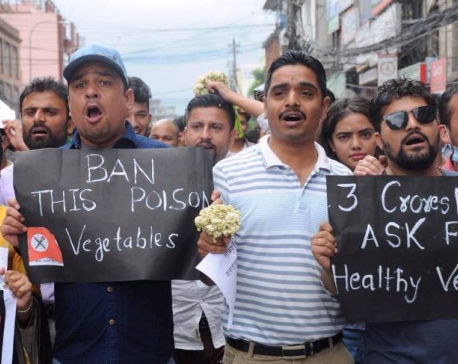
NSU takes to street against govt decision to revoke pesticide tests for fruits, veggies imported from India (with photos)
KATHMANDU, July 7: Cadres of Nepal Student Union (NSU), the student wing of main opposition Nepali Congress, staged a demonstration... Read More...
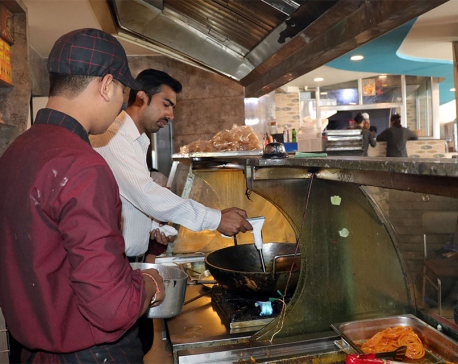
Sangam Sweets found using inedible chemicals
KATHMANDU, Oct. 2: The Department of Food Technology and Quality Control has sealed a sweets house in the capital city.... Read More...
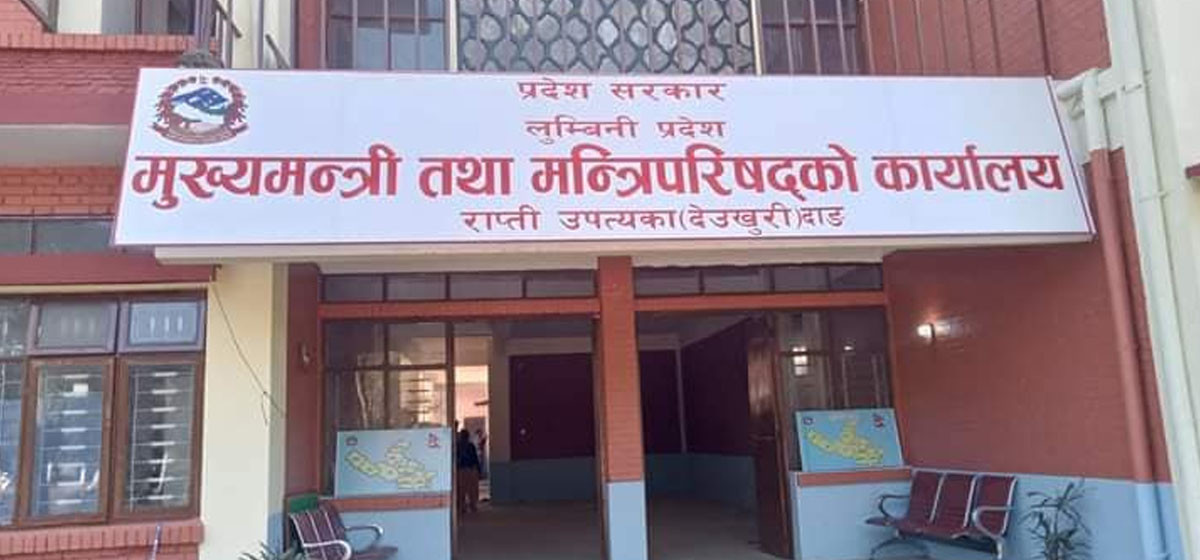

Just In
- CM Mahara expands Cabinet in Lumbini Province
- FinMin Pun addresses V-20 meeting: ‘Nepal plays a minimal role in climate change, so it should get compensation’
- Nepalis living illegally in Kuwait can return home by June 17 without facing penalties
- 'Trishuli Villa' operationalized with Rs 100 million investment
- Unified Socialist rejoins Lumbini Province govt following ministry allocation
- Police release ANFA Vice President Lama after SC order
- 16 hydroelectric projects being developed in Tamor River
- Cosmic Electrical completes 220 kV transmission line project

















Leave A Comment